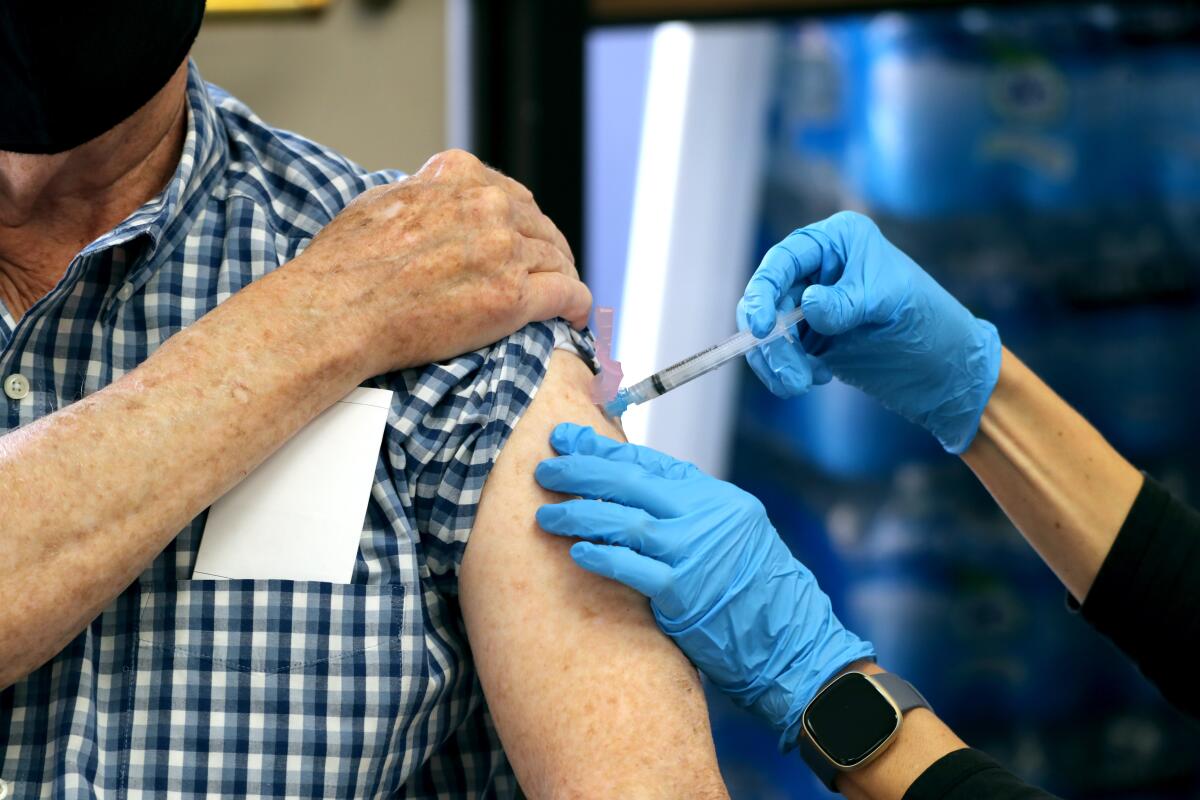Commentary: The disadvantaged are enduring the full impact of COVID-19, but we can help

While major medical and scientific entities are preparing to distribute vaccines for the greatest pandemic of our lifetime, I am struck daily with the reality of the impact of COVID-19 on those in need.
Now that we’re back in the most restrictive phase of life as we know it in Orange County, we’re getting an idea of what people in poverty have endured throughout this pandemic. For them, COVID-19 has never let up. They didn’t return to work in safer, distanced environments or relax while dining out at a trendy restaurant.
As I write this, the pandemic is poised to unleash its worst on our most vulnerable neighbors: Those who were already struggling. During a crisis, disadvantaged Americans feel the greatest impact. In the thick of multiple emergencies this year, working poor, homeless and minority communities are suffering the most severe economic and health losses.
A recent nationwide study by APM Labs found that Black and indigenous populations are experiencing the highest death tolls from COVID-19 — logging a death toll exceeding 1 in 800 nationally. Researchers also adjusted mortality rates for age differences. This revealed Black, indigenous and Latino Americans all have COVID-19 death rates of more than twice that of white Americans, who experience the lowest age-adjusted rates. Locally, a UCI study found that COVID-19 disproportionately affects low-income adults and Latinos, with experts linking the causes to preexisting health issues, crowded living conditions, barriers to healthcare and the inability to work from home.
The economic damage rendered by school and business closures has sparked crises in food insecurity, mental health and education for those who lack the resources to survive them. For children in poverty, education and health are related: School is a source of nutrition, healthcare and mental health support. The parents of these students are underemployed or already unemployed or working families who have become vulnerable after pandemic-related job losses.
Many of these families are facing the end of federal unemployment benefits Dec. 26 and state eviction protections after February 2021. This economic disaster will have a long-term effect on our entire community. Not only are we still in the eye of the storm, but the coming vaccine will not cure the damage COVID-19 leaves behind.
The answers to our health, economic and social well-being don’t exist in a vaccine, in multiple rounds of economic stimuli or the hearts of thousands of volunteers. It comes down to three elements working in a coordinated, equitable system: Nimble nonprofits, the public policy of state and local government and the influence of the private sector. Through this effort, we can create a vision of not a new normal, but a new acceleration to drive change in our communities.
As leaders of nonprofits, businesses, healthcare entities and educational institutions, we have to deepen our connections and innovate our future. We can collaborate on crucial yet empowering issues like workforce development and job retraining and open new doors for underserved populations to pursue educational pathways. We have no time to lose.
In the next 12 to 18 months, many Orange County restaurants and other hospitality employers, as well as nonprofits, will not survive the pandemic. Subsequently, the need for food and shelter along with resources for family counseling, rental assistance, job training and more will rise. Our mentality should mirror that of any successful group endeavor: Together we are stronger, smarter, faster and more effective. The vaccine will help us overcome the public health tragedy, but we are the vaccine that will end poverty.
You can drive change right now: Contact your congressional representative and urge them to pass the CARES Act Extension. Passing this bill will extend vital emergency assistance and healthcare response to individuals, families and businesses most severely affected by the novel coronavirus pandemic.
The writer is president and CEO of Community Action Partnership Orange County.
All the latest on Orange County from Orange County.
Get our free TimesOC newsletter.
You may occasionally receive promotional content from the Daily Pilot.



